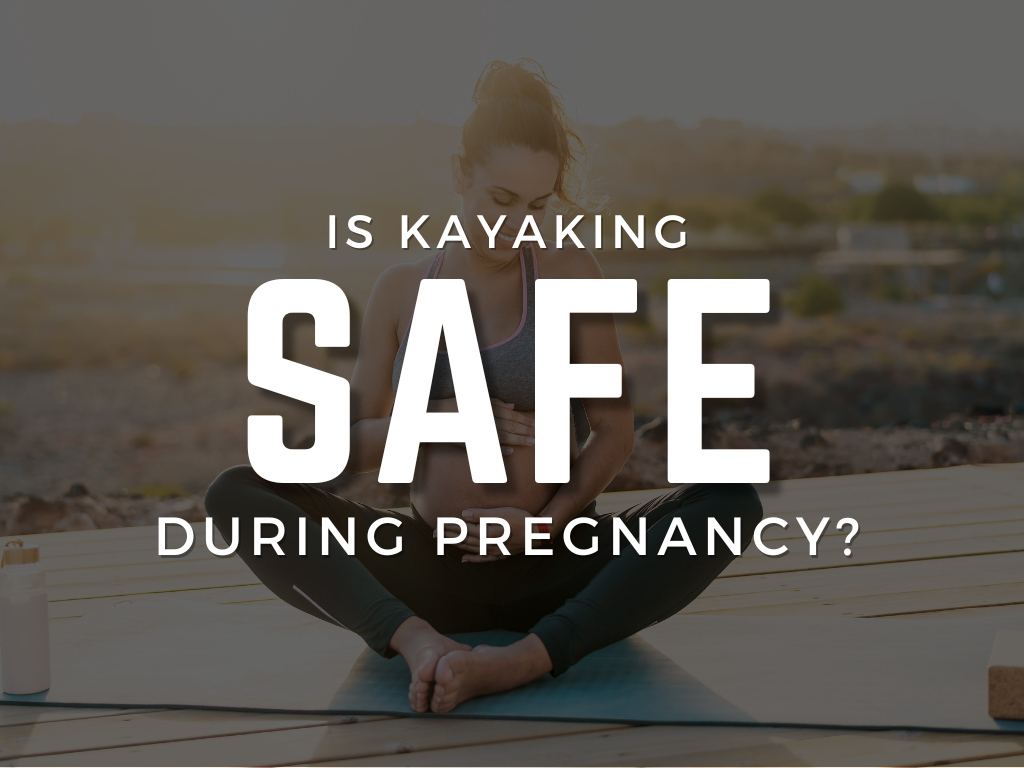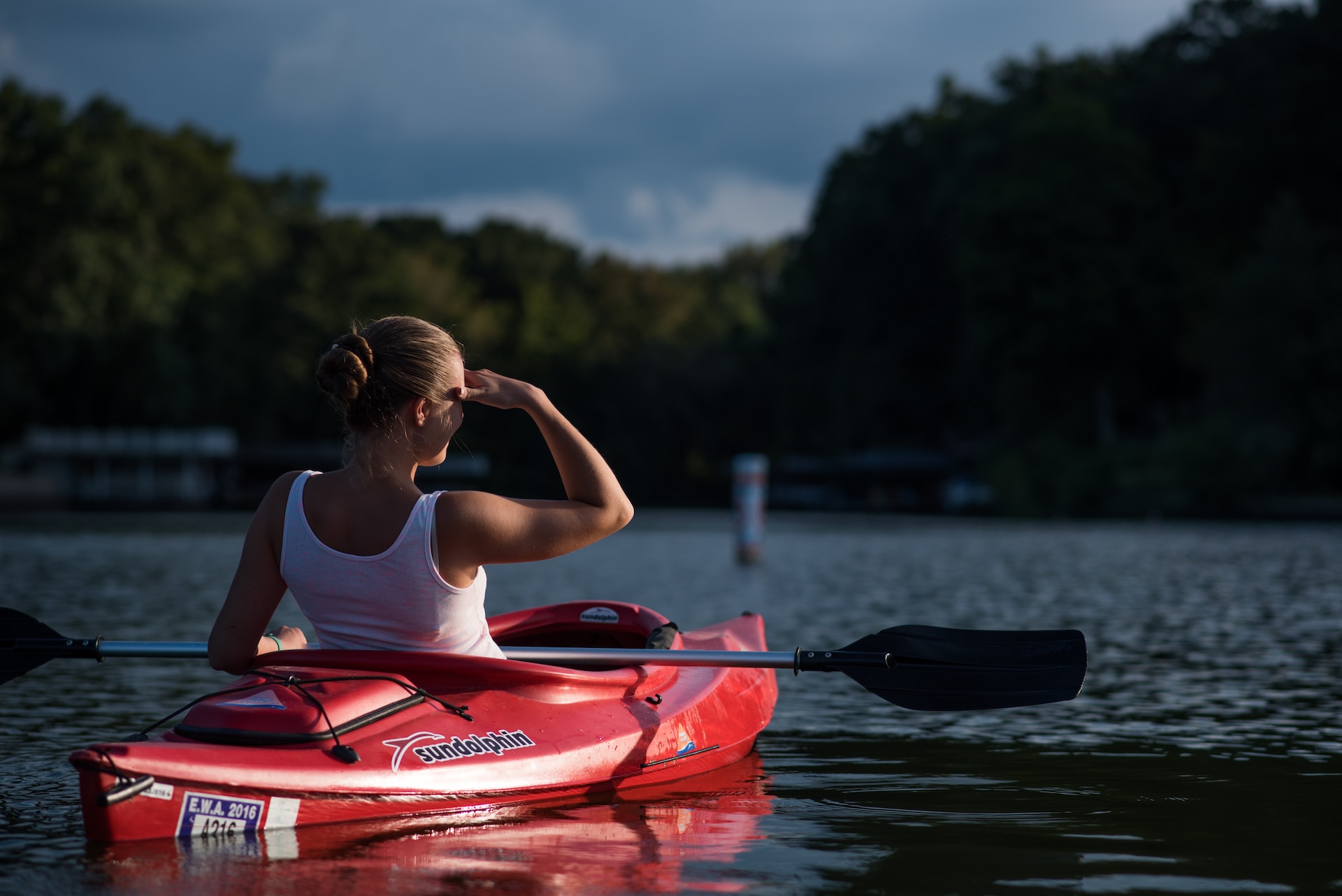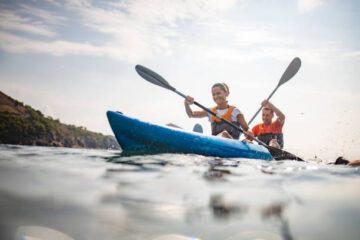Yes, kayaking while pregnant is generally safe. It’s a low-impact exercise that can benefit health. However, always consult your doctor and consider your individual pregnancy needs.
Pregnancy brings many changes, but it doesn’t mean giving up hobbies. Kayaking can be a way to stay active and enjoy nature. Here are key points:
- Understand your body’s limits.
- Choose calm waters.
- Use a stable kayak.
- Stay hydrated and protected from the sun.
Remember, every pregnancy is unique. Listen to your body and medical advice. Kayaking can be a joyful experience during pregnancy with the right precautions.

Is Kayaking Safe During Pregnancy?
Pregnancy is a time of caution and care. Many women wonder about the safety of kayaking during this period. Let’s explore this topic in detail.
Kayaking and Its Physical Demands:
Kayaking is a low-impact activity. It involves upper body movement and core stability. Paddling requires arm strength and endurance. It also needs balance and coordination. These demands are generally mild.
Analyzing the Safety of Kayaking While Pregnant:
Safety is key when kayaking during pregnancy. The risks are low in calm waters. It is important to avoid rough conditions. Capsizing or falling into the water can be risky.
Pregnant women should choose stable kayaks and calm environments. They should also avoid long distances and strenuous paddling. Safety gear like life jackets is a must.
Expert Opinions and Medical Advice:
Doctors often encourage mild to moderate exercise during pregnancy. It boosts health and well-being. Experts say activities like kayaking can be safe.
This is true if the pregnancy is low-risk and the woman has prior experience. It is crucial to consult a healthcare provider before starting. They can offer personalized advice based on the individual’s health and pregnancy stage.
Benefits of Kayaking When Pregnant
Kayaking during pregnancy isn’t just about staying active. It offers unique benefits for both physical and mental health. Let’s dive into these advantages.
Physical and Mental Health Benefits:
- Enhances Cardiovascular Health: Kayaking improves heart health. It’s a form of aerobic exercise, good for the heart.
- Strengthens Muscles: It builds upper body strength. This includes arms, shoulders, and back.
- Promotes Joint Health: Being a low-impact activity, it’s gentle on the joints.
- Reduces Stress: Water and nature have calming effects. They help lower stress levels.
- Boosts Mood: Exercise like kayaking increases endorphins. This improves mood.
- Improves Sleep: Regular physical activity can lead to better sleep patterns.
How Kayaking Can Aid in Managing Pregnancy Symptoms:
- Alleviates Back Pain: Strengthening the upper body can reduce back pain.
- Controls Weight Gain: It’s a good way to maintain a healthy weight.
- Reduces Swelling: Gentle exercise helps reduce swelling in the legs and feet.
- Increases Energy Levels: Regular activity boosts energy.
Improves Balance and Coordination: Kayaking enhances core stability, which is beneficial during pregnancy.
When to Avoid Kayaking in Pregnancy
While kayaking can be safe during pregnancy, there are times when it’s best to avoid it. Understanding these situations is crucial for the safety of both mother and baby.
Identifying High-Risk Pregnancies and Related Concerns:
- History of Miscarriages: Women with a history of miscarriages should be cautious.
- Preterm Labor Risk: If there’s a risk of early labor, kayaking is not advised.
- Placenta Previa: This condition makes strenuous activities risky.
- Preeclampsia: High blood pressure and other symptoms can make kayaking unsafe.
- Severe Anemia: Low energy levels and dizziness can increase the risk of accidents.
- Cervical Issues: A weak cervix can lead to complications.
Situations Where Kayaking Might Not Be Advisable:
- Late Pregnancy: Balance and fatigue issues make kayaking harder in the later stages.
- Lack of Swimming Skills: Non-swimmers should avoid water sports.
- Unfamiliar Waters: Unknown or unpredictable water conditions are risky.
- Extreme Weather: Hot weather can lead to dehydration, and cold can increase hypothermia risk.
- Solo Kayaking: It’s safer to have company, especially in an emergency.
Precautions and Safety Tips
Safety is paramount when kayaking during pregnancy. Taking the right precautions ensures both the mother’s and baby’s well-being. Let’s look at essential safety measures and the best equipment for kayaking during pregnancy.
Essential Safety Measures for Kayaking During Pregnancy:
- Consult a Doctor: Get medical clearance before kayaking.
- Wear a Life Jacket: Always wear a well-fitting life jacket.
- Stay Hydrated: Carry enough water to prevent dehydration.
- Avoid Rough Waters: Choose calm, familiar water bodies.
- Limit Duration: Keep kayaking sessions short to avoid fatigue.
- Monitor Weather Conditions: Avoid kayaking in extreme weather.
- Have Company: Kayak with a partner for added safety.
- Listen to Your Body: Stop if you feel discomfort or pain.
Choosing the Right Equipment and Kayak Type:
- Stable Kayak: Opt for a wider, more stable kayak.
- Comfortable Seating: Ensure the kayak seat supports your back.
- Easy Entry/Exit: Choose a kayak that’s easy to get in and out of.
- Lightweight Paddle: A lighter paddle reduces strain on arms.
- Sun Protection: Use sunscreen and wear a hat for sun protection.
- Appropriate Clothing: Wear comfortable, non-restrictive clothing.
By following these safety measures and choosing the right equipment, pregnant women can enjoy kayaking safely. It’s all about being cautious, prepared, and listening to your body. With these tips in mind, kayaking can be a pleasant and safe experience during pregnancy.
FAQs
What Should I Do if I Experience Discomfort While Kayaking During Pregnancy?
If you feel discomfort while kayaking, stop immediately. Rest and assess your condition. If discomfort persists, seek medical advice. It’s important to listen to your body and not push beyond your comfort zone, especially during pregnancy.
Can Kayaking During Pregnancy Impact the Baby’s Health?
Moderate kayaking is unlikely to harm the baby’s health in a low-risk pregnancy. It’s a low-impact activity with minimal jarring or bouncing movements. However, high-risk pregnancies require extra caution. Consult your doctor for advice tailored to your specific health situation.
Are There Any Legal or Liability Considerations for Kayaking While Pregnant?
Legal or liability issues for kayaking while pregnant are rare. However, it’s wise to check with the kayak rental company about their policies. Some may be specific guidelines or restrictions for pregnant women. Always inform them of your pregnancy for appropriate advice and equipment.
Final Thoughts
So, kayaking during pregnancy can be a safe and enjoyable activity when approached with caution and mindfulness. It offers numerous physical and mental health benefits while allowing expectant mothers to connect with nature.
However, individual circumstances vary, and it’s essential to consult with a healthcare provider for personalized guidance. By following safety measures and choosing the right equipment, kayaking can be a fulfilling experience during pregnancy.





[…] Can you kayak while pregnant: Kayaking during pregnancy can be a low-impact exercise, but consult your healthcare provider for personalized advice. Learn more about kayaking during pregnancy. […]